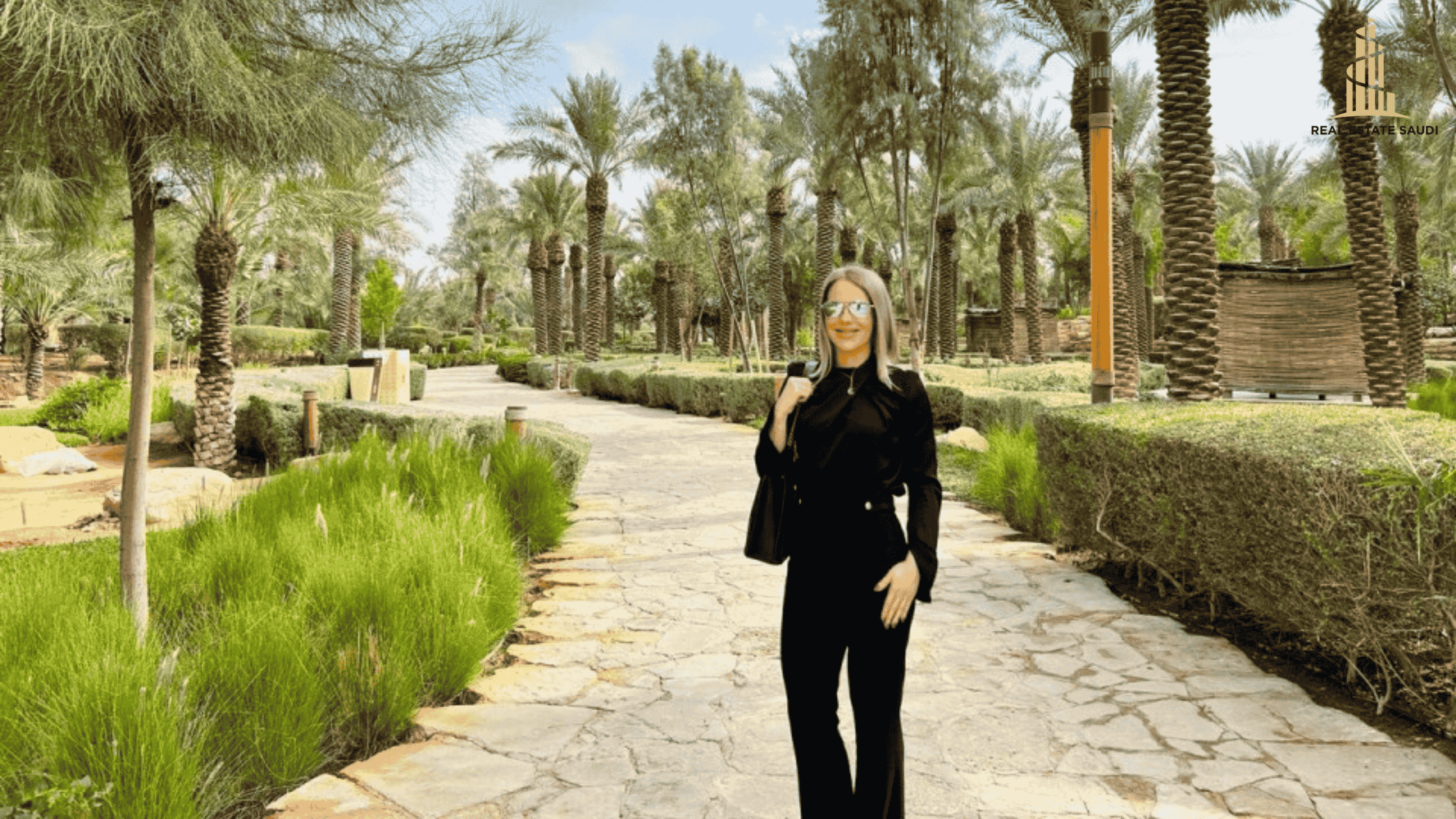Introduction: Saudi Arabia, recognised for its rich cultural historical past and rapidly developing economic system, is increasingly attracting expatriates for work, investment, and entertainment. With the bold vision 2030 initiative aiming to diversify the economy and enhance first-class of existence, the usa has become a prime vacation spot for foreigners. Renting belongings in Saudi Arabia can be a complex procedure because of prison, cultural, and sensible considerations. This comprehensive guide aims to assist foreigners navigate the assets condominium market in Saudi Arabia.
Read: Top 5 Home Salon Startups In India Disrupting The Industry
Renting Property in Saudi Arabia:
Understanding the Legal Formalities:
Tenancy Laws and Regulations: The rental market in Saudi Arabia operates under a well-defined legal framework designed to promote transparency and equity. Oversight of real estate activities, including rentals, is managed by the Real Estate General Authority (REGA). Key regulations include:
Tenancy Contracts: Every rental agreement must be formalized using standardized tenancy contracts. These contracts comprehensively detail lease terms, rental rates, and the obligations of both landlords and tenants.
Ejar System: Managed by the Ministry of Housing, the Ejar system plays a crucial role in regulating the rental market. This electronic platform registers rental contracts, facilitates rent payments, and effectively resolves disputes. It ensures adherence to legal standards and enhances transparency throughout the rental process.
Foreign Ownership Rules: While foreign nationals can lease property throughout Saudi Arabia, ownership is restricted to designated areas such as the King Abdullah Economic City. Renting, however, remains widely accessible and facilitates foreign residency without the constraints of property ownership.
Read:
A Guide to Foreigners Renting Property in Saudi Arabia:
This regulatory framework underscores Saudi Arabia’s commitment to fostering a fair and structured rental environment, supporting both landlords and tenants in their contractual rights and obligations.
Rental Rules & Regulations for Foreigners: Foreigners renting property in Saudi Arabia need to be mindful of several crucial considerations:
Residency Requirement: Foreigners must hold a valid residency permit (Iqama) to rent property legally. This document is essential for all legal and financial transactions related to renting.
Legal Formalities: Rental agreements must be formalized through standardized contracts and registered via the Ejar system to ensure their legality and enforceability.
Security Deposits: Landlords often require a security deposit, typically equivalent to one to three months’ rent. It’s important for tenants to ensure that the exact terms regarding the deposit are clearly stated in the tenancy agreement.
Adhering to these requirements helps ensure a smooth and legally compliant rental experience for foreigners residing in Saudi Arabia.
Analysis of Market Trends and Key Geographic Areas:
Demand and Supply : The rental market in Saudi Arabia is shaped by economic growth, urbanization, and the influx of expatriates. Riyadh, Jeddah, and Dammam stand out as top destinations due to their economic prospects and modern amenities.
Riyadh: Serving as the capital and economic nucleus, Riyadh experiences robust demand for rental properties. Expatriates favor neighborhoods such as Al Olaya, Al Malqa, and Al Mohamadiya for their proximity to business districts and modern infrastructure.
Jeddah: Recognized as a commercial hub and gateway to Mecca, Jeddah boasts areas like Al Shate’ and Al Hamra, renowned for their seaside vistas and upscale living choices.
Dammam: Within the Dammam Metropolitan Area, which includes Al Khobar and Dhahran, Dammam thrives on multinational corporate activity and industrial ventures. Popular locales such as Al Aqrabiyah and Al Khobar reflect the city’s dynamic rental market.
Rental Prices: Rental prices in Saudi Arabia vary considerably depending on the location, type of property, and available amenities. For example, a two-bedroom apartment in Riyadh or Jeddah can range from SAR 50,000 to SAR 120,000 per year, influenced by the neighborhood and the overall quality of the property.
Types of Rental Properties:
Apartments: Apartments dominate the rental market in urban areas, ranging from studios to multi-bedroom units, typically equipped with amenities such as gyms, swimming pools, and security services.
- Studio Apartments: These compact units are ideal for single expatriates or young professionals, featuring basic amenities tailored to their needs.
- Multi-bedroom Apartments: Designed for families, these apartments offer more space and often provide access to communal facilities, catering to larger living requirements.
Villas: Villas are standalone properties prized for their privacy and ample space, making them highly favored among expatriate families and affluent individuals. Available in diverse sizes and architectural styles, luxury villas often boast private gardens, swimming pools, and premium finishes, catering to discerning tastes and lifestyles.
Compounds: Residential compounds are gated communities renowned for their heightened security and strong community atmosphere. These compounds frequently offer a range of amenities such as recreational facilities, supermarkets, and schools within their confines. Their comprehensive offerings make residential compounds a top choice among expatriates and affluent locals seeking convenience, safety, and a vibrant community environment.
Guide to Renting: Navigating the Rental Process with Ease:
Find a Property:
Online Platforms: Websites like Bayut, Propertyfinder, and Real Estate Saudi Property World showcase a diverse range of rental properties. These platforms enable users to refine searches by location, price, and property type.
Real Estate Agents: Engaging a trusted real estate agent streamlines the search process. Agents possess extensive local market knowledge and assist in finding suitable properties, negotiating terms, and ensuring legal compliance.
Word of Mouth: Networking within expatriate communities and social media groups offers valuable tips and referrals for rental properties.
Viewing Properties: When assessing properties, take into account the following factors:
Location: Evaluate proximity to workplaces, schools, healthcare facilities, and recreational amenities.
Amenities: Ensure the property offers essential features like parking, security services, and maintenance support.
Condition: Inspect the overall state of the property, including appliances, fixtures, and utilities.
Signing the Lease:
Reviewing the Contract: Thoroughly review and comprehend the terms and conditions outlined in the tenancy agreement. Document all verbal agreements with the landlord within the contract.
Security Deposit: Confirm the security deposit amount and the stipulations for its refund.
Ejar Registration: Ensure the tenancy agreement is registered via the Ejar system for legal validity and to streamline potential dispute resolutions in the future.
Moving In:
Utility Connections: Organize the setup of essential utilities such as electricity, water, and internet services.
Maintenance and Repairs: Coordinate with the landlord or property management to establish procedures for handling maintenance and repair requests.
Community Rules: Familiarize yourself with the regulations governing noise levels, waste disposal, and the use of communal facilities within the residential compound or building.
Challenges and Considerations:
Cultural Sensitivities: Saudi Arabia boasts a rich cultural heritage defined by specific traditions and norms. Foreigners are expected to honor local customs, including dress codes and social etiquette. Appreciating and adhering to these cultural sensitivities is essential for a seamless transition into the community.
Bureaucratic Processes: Navigating the bureaucratic landscape can pose challenges for newcomers. Understanding legal requirements, obtaining necessary permits, and managing administrative processes can be time-consuming. Engaging local real estate professionals and legal advisors can significantly ease these hurdles.
Language Barrier: Although English is commonly used in business contexts, Arabic serves as the official language in Saudi Arabia. This language barrier can present communication challenges, especially when interacting with local authorities or interpreting legal documents. Seeking support from bilingual professionals or utilizing translation services is recommended to navigate these situations effectively.
Tips for Foreigners Renting Property:
Research :
Understand the Market: Conduct comprehensive research into the rental market, including average prices, sought-after neighborhoods, and the range of amenities available. Utilize online real estate platforms and local agencies for valuable insights and data.
Budgeting: Develop a well-defined budget that encompasses not only the rental expense but also additional costs like utilities, maintenance fees, and security deposits.
Legal Assistance:
Engage a Real Estate Agent: Simplify your search by hiring a reputable real estate agent with a deep understanding of the local market. They can assist in finding suitable properties, negotiating rental terms, and ensuring legal compliance.
Review Contracts Carefully: Before signing, thoroughly comprehend the terms and conditions of the rental contract. Consider seeking legal advice if necessary to clarify any uncertainties and ensure your understanding aligns with the agreement.
Cultural Adaptation:
Learn Basic Arabic: Acquiring knowledge of basic Arabic phrases can enhance daily interactions and showcase appreciation for the local culture.
Respect Local Norms: Embracing local customs, such as adhering to dress codes and social etiquette, fosters seamless integration into the community.
Conclusion: Renting property as a foreigner in Saudi Arabia presents a blend of opportunities and challenges. The Kingdom’s burgeoning economy, driven by its ambitious Vision 2030 initiative, has positioned it as an appealing destination for expatriates. To navigate the rental landscape effectively, understanding the legal framework, market dynamics, and cultural nuances is crucial.
Foreigners must navigate regulatory requirements, respect local customs, and anticipate potential bureaucratic complexities. Engaging with knowledgeable local professionals, conducting thorough market research, and embracing cultural adaptability are essential strategies for success.
As Saudi Arabia continues its path of modernization and welcomes increased foreign investment, the property rental market is poised to become more dynamic and accessible. This evolution promises enticing prospects for expatriates seeking to establish roots in this vibrant and evolving country.





